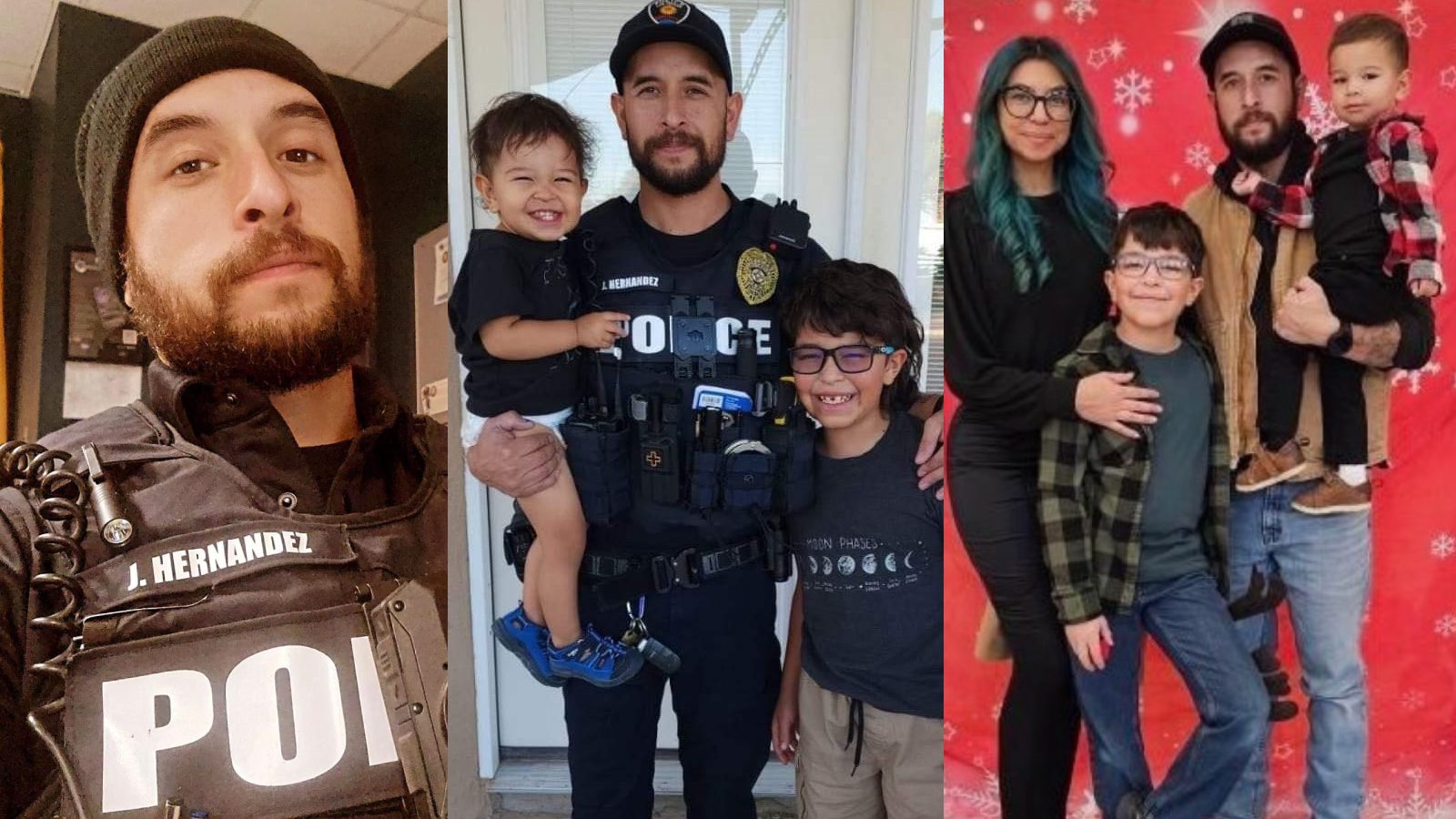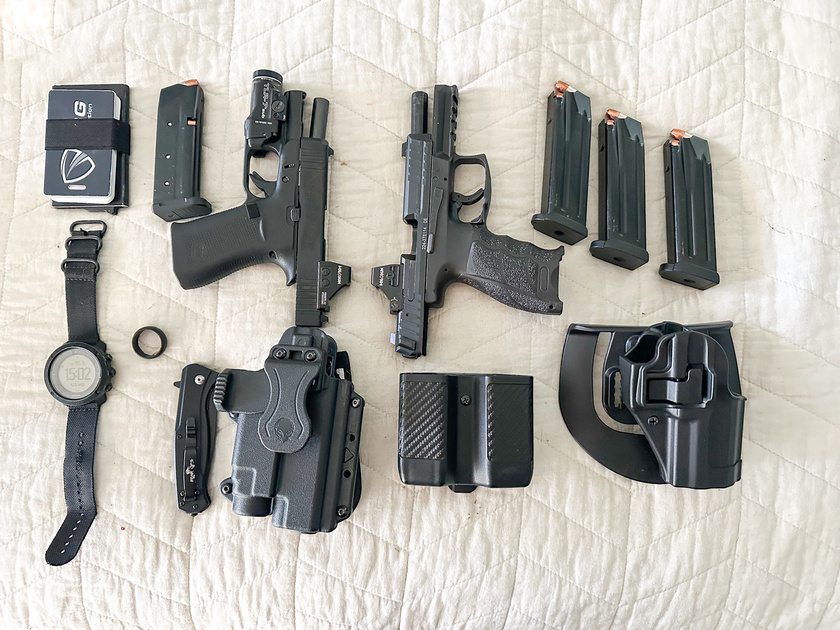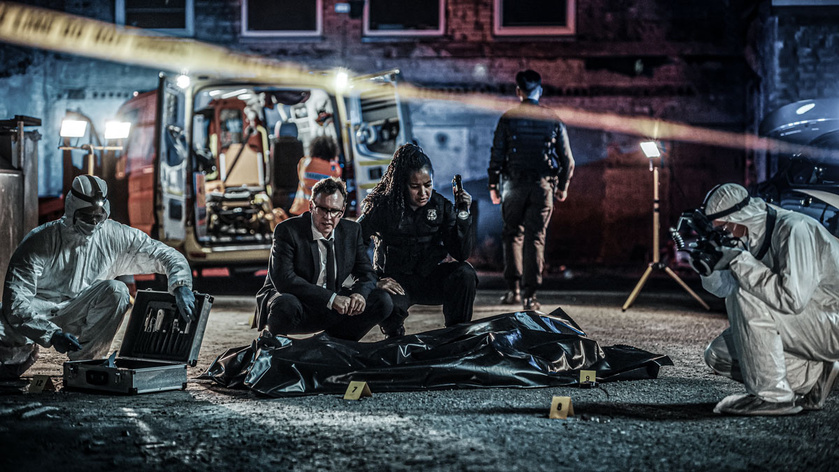I am sure someone will come up with an exception to this statement, but why would you want to convince yourself it was ok to do less training? To be less prepared? To be less capable and effective?
I never want to lose. I never want to be that guy in the news that came up short when a threat showed up and someone I was supposed to protect got hurt, or worse. Constant training is the only way I know I can be at my very best.
But I have an incredible wife and three small children at home that I love. They take priority over my non-work time. I also serve in my church, I have friends I want to spend time with and plenty to do at home. Training has to be scheduled if it’s going to happen, but time is so tight some weeks it’s impossible to get it all done.
The silver lining here is the nature of our work. Some have characterized Law Enforcement and Private Security as hours of boredom interrupted by seconds of terror. It sounds dramatic but we do get a lot of time to think while on the job. I decided to invest that time in training.
I started using the slow time to visualize scenarios or “what-ifs” to pass the time. What I discovered is that I was really developing action plans and contingency plans for potential encounters and when those encounters actually happened, I was way ahead of the curve and handled them better than I had when I was not prepared and just reacting to a threat.
That started a whole new training process for me, where I used my time at work to plan and prepare for threats and encounters. I began by observing and evaluating my work environment. I identified entrances/exits, obstacles, and things that could be potential problems or assets in an encounter. I looked for things that could provide cover and concealment and things that could potentially be used as a weapon. I measured distances from points of cover and determined best lanes of fire in the event of an armed encounter.
Next, I visualized every kind of attack possible, multiple assailants, assailants from more than one direction, mob attacks, intentional distractions that would draw protection away from the actual primary attack. I imagined different weapons, guns, knives, swords, chemical agents, even fire. I ran every imaginable scenario in my head, then evaluated potential solutions to determine a plan of action that would produce the lowest amount of risk and the greatest survivability.
I took it a step further and wrote notes, then when I was off work I would study video of actual encounters and events to evaluate them and learn what worked and what did not, and why.
The result was that I was more attentive at work, more aware and more confident because I felt I had the upper hand on any threat. Because I was searching for problems, I saw them long before I would have before and often got ahead of problems and prevented them before they happened.
If you are a protector, and especially an armed protector, you are the first target. The bad guys need to eliminate security first before they can do whatever they came to do. So they are always watching us, observing tendencies, evaluating the environment and evaluating our potential ability to defend their attack. They look for weaknesses, complacency, laziness, distractedness. They study habitual behavior, anything that would give them an edge, or an opportunity. I do everything I can now to make sure I am more prepared than they are.
Being switched on at work and always training in your mind will keep you alert, observant, and ready for almost anything. In my experience, a squared away protector that is mentally engaged in their work, is more observant, more alert, and will cover their position with greater intention and purpose. That is a proven deterrent for bad guys that are looking for an easy opportunity.
Some Things You Can Do To Be Better Prepared
1. Hit the switch when you go to work. Turn on your work brain and start evaluating environments and people and visualizing solutions to problems. Once you have a plan A, visualize contingency plans in case plan A does not work.
2. Be visually squared away so your appearance is the first deterrent. Dress sharp, be neatly groomed, and wear clothing that will allow you to move unrestricted and that provide easy access to weapons, radios, etc..
3. Make the decision to be prepared for every possible scenario then constantly scan the area and everything in it to identify anomalies that may indicate a potential threat.
4. Talk and think positively about your work and take pride in doing it well. We protect people from others with bad intentions, but a huge part of our success depends on exceptional customer service, kindness, and professionalism (soft skills). And yes, the most prepared and successful protectors have exceptional soft skills AND are exceptional defenders.
5. Lastly, but most important, we are serving God. Safety is can also be ministry. We pray as a team before every event, and while we are all trained professionals, we are also brothers and sisters in Christ and it’s important that we call upon him to strengthen and protect us, and guide our steps.
Ephesians 6:11-18
Put on the whole armor of God, that you may be able to stand against the wiles of the devil. For we do not wrestle against flesh and blood, but against principalities, against powers, against the rulers of the darkness of this age, against spiritual hosts of wickedness in the heavenly places. Therefore take up the whole armor of God, that you may be able to withstand in the evil day, and having done all, to stand.
Stand therefore, having girded your waist with truth, having put on the breastplate of righteousness, and having shod your feet with the preparation of the gospel of peace; above all, taking the shield of faith with which you will be able to quench all the fiery darts of the wicked one. And take the helmet of salvation, and the sword of the Spirit, which is the word of God; praying always with all prayer and supplication in the Spirit, being watchful to this end with all perseverance and supplication for all the saints
The New King James Version. Thomas Nelson, 1982, p. Eph 6:11–18.



















